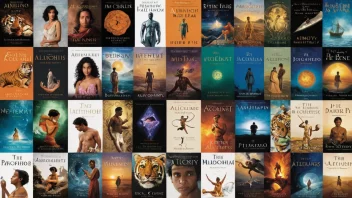The literary world is rich with diversity, and one of the most fascinating comparisons lies between bestsellers and literary awards. While both categories celebrate outstanding literature, they often highlight different aspects of writing and reading culture. This article delves into the nuances of bestsellers and literary awards, examining their definitions, significance, and the ways they influence readers and authors alike.
Definitions and Criteria
Bestsellers are typically determined by sales figures, reflecting the popularity of a book among readers. Various lists, such as The New York Times Best Sellers or Amazon's Top 100, rank books based on sales data, often across different formats like hardcover, paperback, and digital editions. In contrast, literary awards are bestowed by organizations, critics, or literary communities, recognizing exceptional writing, thematic depth, and artistic merit. Notable awards include the Pulitzer Prize, the Booker Prize, and the National Book Award.
Criteria for Bestsellers
- Sales Volume: The primary criterion for a book to be labeled a bestseller is its sales performance.
- Market Trends: Factors such as marketing campaigns, author popularity, and current events can significantly influence a book's sales.
- Reader Appeal: Bestsellers often tap into popular genres, themes, or trends that resonate with a wide audience.
Criteria for Literary Awards
- Artistic Quality: Literary awards focus on the quality of writing, innovation, and originality.
- Thematic Depth: Awards often consider the themes explored within the text and their relevance to societal issues.
- Critical Acclaim: Books nominated for or winning awards are typically reviewed favorably by critics and literary scholars.
Pros and Cons of Bestsellers
Pros
- Widespread Reach: Bestsellers often achieve significant visibility, encouraging more readers to explore literature.
- Diverse Genres: The bestseller list includes a range of genres, making literature accessible to various tastes.
- Market Influence: Bestselling authors can influence trends and inspire new writers to pursue similar themes or styles.
Cons
- Commercial Focus: The emphasis on sales can overshadow the artistic value of literature.
- Quality vs. Popularity: Some bestsellers may not stand the test of time or possess literary merit.
- Reader Expectations: Bestsellers may lead readers to favor formulaic narratives over innovative storytelling.
Pros and Cons of Literary Awards
Pros
- Validation of Craft: Winning a literary award can elevate an author's status and highlight their skill.
- Encouragement for Diverse Voices: Awards often seek to recognize underrepresented authors and genres.
- Quality Recommendations: Award winners are frequently seen as high-quality literature and can lead to enriching reading experiences.
Cons
- Limited Audience Appeal: Award-winning books may cater to niche interests, limiting their readership.
- Subjectivity: The selection process for awards can be influenced by personal biases of judges, leading to controversy.
- Pressure on Authors: Some writers may feel constrained by the expectations associated with award-winning literature.
Differences in Audience Reception
The reception of bestsellers and literary award winners can vary significantly among audiences. Bestsellers attract a broad readership, often appealing to casual readers seeking entertainment or escapism. In contrast, literary award winners tend to attract readers who seek depth, complexity, and thought-provoking narratives. This distinction shapes the conversations surrounding each category and influences the way literature is discussed in social circles, book clubs, and online communities.
Impact on Literary Trends
Bestsellers often dictate market trends, leading to the rise of specific genres or themes. For instance, the popularity of dystopian novels in the 2010s, spurred by titles like “The Hunger Games,” showcased how commercial success could shape readers' interests. Conversely, literary awards often highlight emerging trends in literature, giving a platform to innovative styles, diverse voices, and socially relevant themes. For example, the recognition of authors addressing issues of race, gender, and identity has paved the way for more inclusive literature.
Conclusion
In conclusion, both bestsellers and literary awards play vital roles in the literary landscape, each offering unique insights into the world of books. Bestsellers provide a snapshot of popular trends and reader preferences, while literary awards celebrate artistic achievement and thematic exploration. For readers, the ideal approach may be to appreciate both categories, allowing for a well-rounded literary experience that values both popular appeal and literary merit. By engaging with both bestsellers and award-winning literature, readers can enjoy a broader understanding of the literary world, discovering new voices and perspectives along the way.






